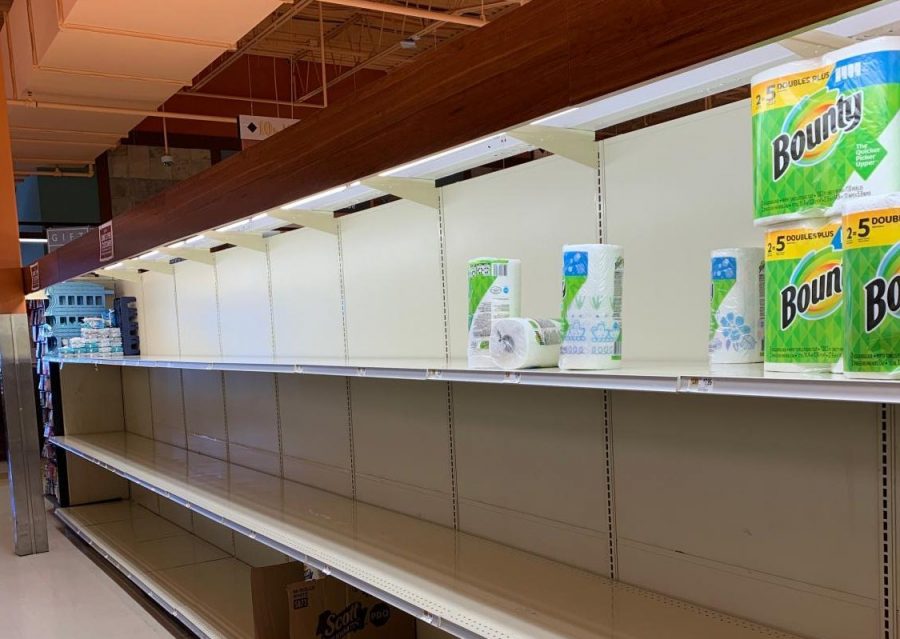Are Panic Buying and Social Distancing Effective?
Store in which everything except a few paper towel rows have been bought off the shelf due to panic buying. (Photo: David Cohen ’23)
April 2, 2020
As cases of COVID-19 are spreading across the globe, more and more people are growing worried about coming into contact with the Coronavirus. With over 60,000 cases in the U.S., the virus has stirred up quite a storm, especially as college students across the country have been forced to evacuate campuses and certain state governments have enforced a strict 24-hour curfew for non-essential businesses. As a result, the public response to this pandemic has involved significant panic buying and social distancing. But how effective are these measures? And are they really necessary?
Sophomore Divya Sharma shared her thoughts, saying, “I think panic buying is a person’s first instinct: many people don’t want to be around crowds of people so they buy everything in a rush. But it should not be necessary. Many, such as [the] elderly or medical officials, are unable to gain access to many items.” Considering the fact that older folks and those with medical conditions are more prone to being affected by Coronavirus, it is clear that those who are stocking up on food and other necessities are being inconsiderate towards others. Freshman Akash Bhowmick noted, “Instead of taking these resources from families who may be living with infected people inside their homes, we should be aware of how much we’re taking.” As Junior Carl Coetzee added, “Some people have started hoarding vital supplies which they do not need.” Popular stores like ShopRite, Costco, and Rite Aid Pharmacy have had to place limits on items which are in high demand, such as toilet paper, hand sanitizer, and rubbing alcohol, and consequently a lot of people who don’t have the means to buy copious amounts of these resources at once are left returning day after day simply to access bare necessities.
In fact, many members of the PDS community believe that social distancing is a far more efficient way to decrease the likelihood of spreading Coronavirus. Social distancing is followed by people staying a minimum of six feet away from each other in order to avoid transmitting the COVID-19 virus. As junior Katie Jain explained, “Social distancing is necessary for everyone, even those not at risk. Everyone in the PDS community has the potential to be a carrier and pass it to someone who could genuinely be hurt by the virus.” Coetzee added, “If we limit our in-person interaction, the disease cannot continue its current spread.”








